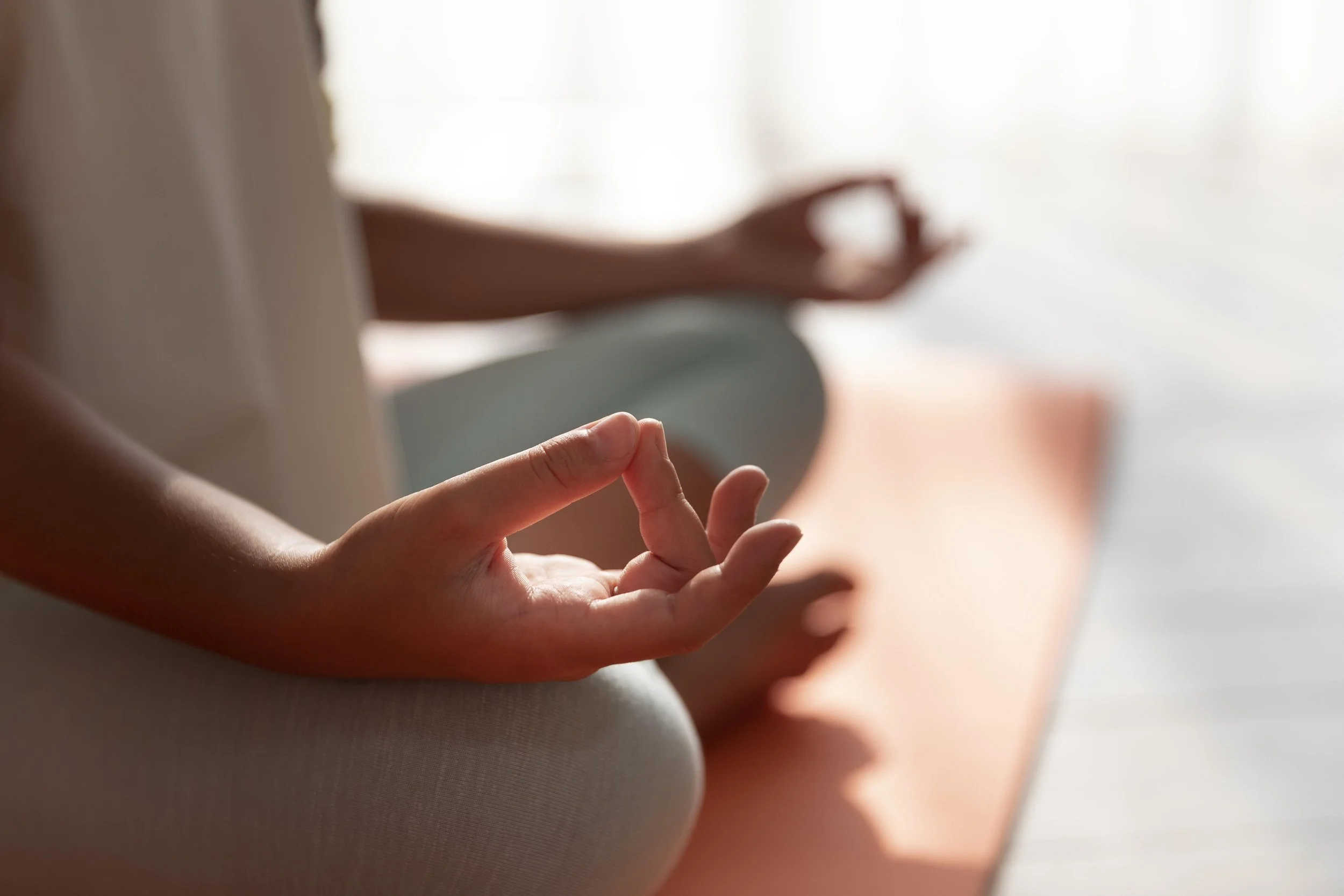Reclaim Your Energy with This Hormone-Healing Morning Routine
Are you tired of being tired? I hear this all the time (and more often than you think!)
When they say health is a journey, it really is. Not just because you need to build habits and show up for yourself, but because we’re constantly bombarded with health advice that feels overwhelming, conflicting, and sometimes completely disconnected from what real women need.
I created this protocol out of personal experience—as a woman, a clinician, and someone who got sick of waking up exhausted, puffy, wired-yet-tired, and anxious. If that sounds like you, keep reading.
No more green smoothies that leave you freezing and hungry by 10 a.m., no more 6 a.m. HIIT classes that burn you out, no more black coffee until noon in the name of intermittent fasting. If you’re doing all the “right” things and still:
Wake up groggy or anxious
Experience unpredictable moods and periods
Feel bloated no matter how clean you eat
…it’s time to flip the script.
This is your invitation to work with your body, not against it.
Let me walk you through a morning routine rooted in hormone balance, functional medicine, and real-life ease.
Why Your Morning Routine Matters for Hormones
In functional medicine, we always go back to the root cause. And for women in their 30s that often leads us here:
Cortisol spikes from stress, poor sleep, and blood sugar crashes
Thyroid sluggishness from years of chronic hustle and under-eating
Low progesterone and estrogen imbalances from inflammation or depleted nutrients
Insulin resistance from skipping meals or eating too late
Here’s the truth:
The first 1–2 hours of your day can either fuel hormone chaos or unlock deep healing.
My Hormone-Healing Morning Routine (and Why It Works)
1. Wake Up with the Sun — Not Your Phone
Instead of scrolling, I open the curtains and let natural light in. If the weather allows, I head outside for 10–15 minutes of sunlight and fresh air while I walk my dog, (It would be cool if you name her here). She's the best accountability partner, and yes—studies show that pets help increase oxytocin, your love and bonding hormone, which naturally lowers cortisol.
Why it works:
Morning sunlight helps reset your circadian rhythm, boosts serotonin, and gently regulates cortisol. This helps you feel awake without reaching for caffeine first.
2. Hydrate Like Your Adrenals Depend on It (Because They Do)
Before anything else, I drink a full glass of filtered water with:
🍋 A squeeze of lemon, for vitamin C and liver support.
🧂 A pinch of mineral-rich sea salt, for adrenal and electrolyte balance.
Why it works:
Your adrenal glands need minerals like sodium, potassium, and magnesium to regulate cortisol and aldosterone levels. Overnight, your body becomes slightly dehydrated. This mineralized water helps replenish what you’ve lost and preps your system for balanced energy.
3. Eat Breakfast (Yes, Before Coffee)
For years, I fasted until noon and wondered why I was anxious, irritable, and foggy by mid-morning. The biggest shift in my hormonal health came when I started eating a warm, protein-rich breakfast within 60 minutes of waking.
Why it works:
Women are more sensitive to fasting and blood sugar crashes, especially in the luteal and menstrual phases.
Skipping breakfast → cortisol spikes → insulin resistance → hormone imbalances (especially low progesterone, high androgens, and poor thyroid function).
➡️ Aim for at least 25–30g of protein in your first meal. Protein is the building block of hormones and helps keep blood sugar steady.
Here’s one of my go-to breakfasts:
🥚 Scrambled pasture-raised eggs in ghee
🥬 Sautéed greens (like spinach or kale)
🍠 Roasted sweet potato (for slow-digesting carbs)
🧂 Sprinkle of sea salt + turmeric (anti-inflammatory and mineral-rich)
💪 Add collagen powder or leftover protein if needed
4. Gentle Movement > Hardcore Workouts
You’ve probably been told that the harder you push, the better. But when your hormones are off? That strategy backfires.
Why it works:
High-intensity training raises cortisol, which can suppress ovulation, wreck your sleep, and stall fat loss (especially around your belly).
If I’m in my luteal or menstrual phase, I stick with:
20–30 minutes of walking, yoga, or light strength training
Gentle rebounding or lymphatic movement
Breathwork and stretching
This supports detoxification, lymph flow, and nervous system regulation—without pushing my body into survival mode.
5. Cycle Check-In
Every morning, I take 30 seconds to ask, “Where am I in my cycle?”
Why it works:
Your hormones change weekly. Understanding where you are—follicular, ovulatory, luteal, or menstrual—helps you sync your energy, workouts, meals, and supplements to your real hormonal needs.
Try apps like Clue, MyFlo, or 28 to get started. I promise this one simple question will help you feel more in tune with your body.
This is what you’ll notice
When done consistently, this hormone-healing morning routine can:
Stabilize blood sugar (no more mid-morning crashes)
Lower cortisol and reduce anxiety
Improve natural melatonin and circadian balance
Support healthy progesterone and estrogen ratios
Boost thyroid function (especially with nutrients like selenium, zinc, and iodine)
Reduce bloating, PMS, and brain fog
Final Thoughts: Start Small, Stay Consistent
You don’t need to overhaul your life overnight.
Start by choosing one shift—maybe breakfast, maybe your morning walk—and build from there. I even like to see this as a ritual, as we sometimes associate routines with something rigid, and that is not the place we want to start from. At Navigate Wellness, we are all about tuning in, nourishing our bodies, and honoring our female hormones.
You deserve to wake up feeling clear-headed, calm, and energized. And I’m here to help you get there, one morning at a time.
🩷 If this felt good to read, there’s more where that came from. Subscribe to the blog and join us on Instagram for easy, research-backed ways to support your hormones, energy, and nervous system.






